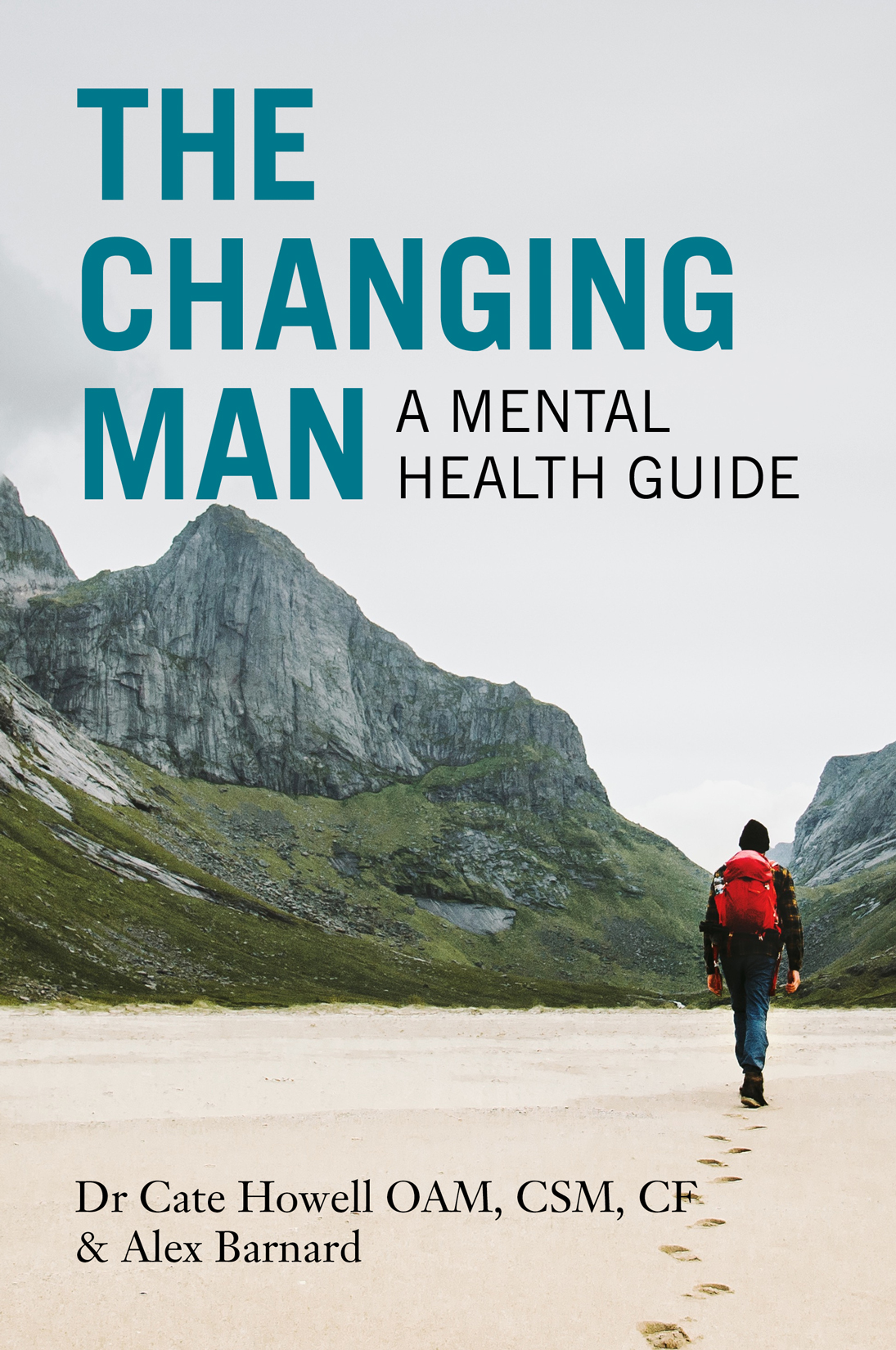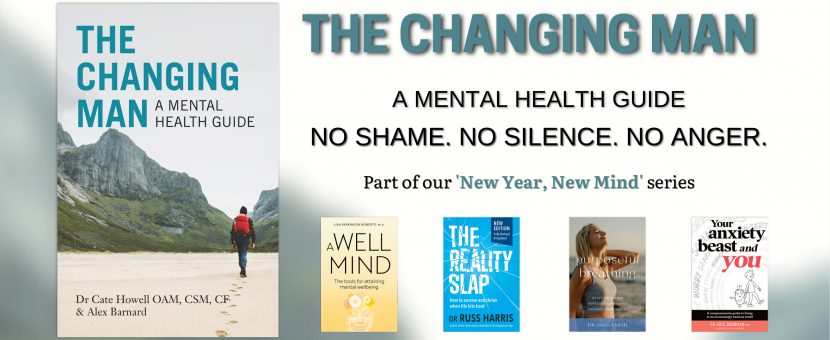
The Changing Man
A Mental Health Guide
by Dr Cate Howell and Alex Barnard
Over the last month we have highlighted just a few of our titles that can help you strengthen your mental and emotional resilience going into 2021. This week, we wanted to focus on a book that targets one portion of our population that has often been overlooked in regards to mental health, men. The following extract from The Changing Man features tools and tips to help not only men, but all of us, overcome disasters and traumas in any form.
When we think about vulnerable people in the community, we probably don’t think of men first, but The Changing Man: A Mental Health Guide, explores a range of issues affecting men’s emotional health and wellbeing.
They are affected by everyday stress, high workloads, anxiety and depression, loss of confidence or identity, relationship breakdowns, family disruption, addictions and trauma — just the same as women.
Thankfully, men, and the conversations around men’s mental health, are changing. Men are re-defining what it is to be ‘strong’, and are more open to understanding their emotions and reaching out for help.
Utilising a collection of tried and tested tools this book, written by mother-son duo Dr Cate Howell and Alex Barnard, seeks to ensure no man suffers in silence again. The following excerpt “Coping with natural disasters”, is both an example of these tools and a guide for us all in unprecedented times.
An extract from The Changing Man
Coping with natural disasters
As the disaster unfolds, humans tend to go into survival mode, doing what needs to be done. Once the threat has passed, you may stay in this mode for some time, and experience a range of physical symptoms, behaviours, thoughts and emotions.
Here are some examples:
- Being hyperalert all the time, not sleeping or getting tired/ exhausted easily.
- Feeling numb, irritable, anxious, panicky or depressed.
- Feeling disorientated or confused and having visual images of the event or nightmares.
- Withdrawing from others or keeping very busy.
It is important to remember that these responses, even though they can be very distressing, are normal and can last for days or weeks. Here are some tips to help with coping.
TEN TIPS FOR COPING WITH AN EMOTIONAL RESPONSE TO DISASTER
- Recognize that you have been through a very distressing experience and focus on feeling safe and secure in the first instance.
- Avoid overusing alcohol or other drugs to cope.
- Don’t bottle up your feelings. Share them with people close to you if you are able to or write them down. If you are a person who expresses yourself through action (e.g. gardening), then do these things.
- Let key family and friends know about what you need, whether it be practical or emotional support.
- Maintain a normal routine and do some things you enjoy.
- Rest when you can and use relaxation techniques (e.g. relaxing each muscle group in the body, breathing effectively — you can download phone apps or borrow CDs from a library to help with this).
- Eat well and do some exercise.
- Problem-solve what you need to be doing — seek help with this from family and friends.
- Be aware that recent trauma may stir up memories from past traumas. Focus on keeping these memories separate in your mind — you can only process so much at one time.
- Seek professional help if need be.


